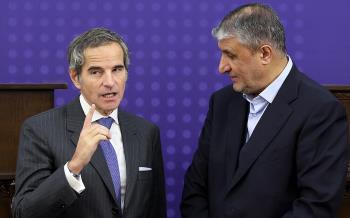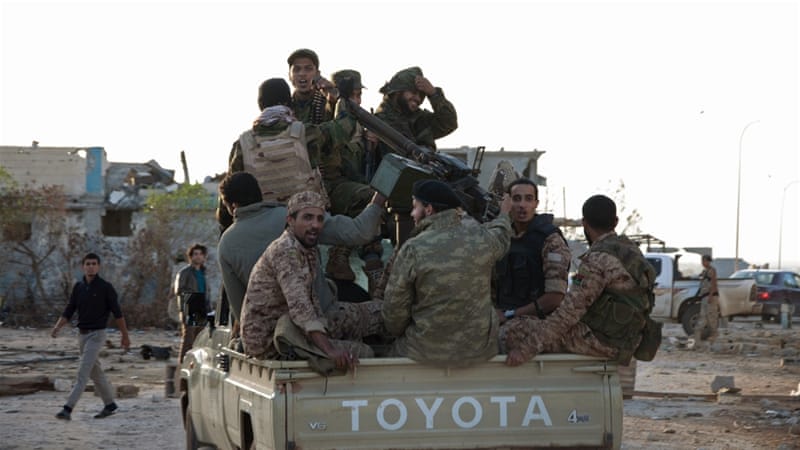Alwaght-Forces loyal to Libyan strongman Khalifa Haftar have started advancing on the country’s western cities and districts amid concerns by Libya’s internationally-recognized government of Fayez al-Sarraj.
The media office of Haftar’s self-proclaimed Libyan National Army (LNA) announced in a statement on Wednesday that the advance on the country’s west was meant to root out what it called “terrorist groups” in the restive region.
“In fulfillment of his (Haftar’s) orders, several military units moved to the western region to purge the remaining terrorist groups located in their last hideouts,” the LNA said in the statement.
The office also published a video showing a convoy of armored vehicles and pickup trucks with heavy guns mounted on them on a road, which appeared to be on the coastline along the eastern city of Benghazi.
The deployment prompted the Tripoli-based Government of National Accord (GNA), administered by Sarraj, to declare a “general alert” to all Libyan army and security forces.
Sarraj said he had ordered pro-government forces to prepare to “face all threats... from terrorist groups, criminals, outlaws, and all who threaten the security of every Libyan city.”
The Tripoli government denounced the move as an “escalation” and called on Haftar’s forces to “stop using the language of threats.”
Additionally, LNA spokesman Ahmed al-Mismari said clashes had erupted between forces loyal to Haftar and those allied to the GNA near Gharyan, a town 50 kilometers south of Tripoli.
It's the closest to Tripoli that Haftar's fighters reached in their campaign westwards from the country's east.
Meanwhile, Secretary-General Antonio Guterres concerned about the potential for clashes in Libya, where eastern military forces have moved west and skirmished with rival forces south of the capital Tripoli.
The UN chief says he's worried about a major showdown in Libya and is urging warring factions to turn to dialogue instead.
He added: "There is no military solution. Only intra-Libyan dialogue can solve Libyan problems."
Guterres arrived in Libya on Wednesday — the first UN chief to visit since the 2011 uprising.
In recent years, Haftar has expanded his foothold in large parts of Libya and has repeatedly expressed his intention to march on Tripoli.
Libya has been the scene of increasing violence since 2011, when former dictator Muammar Gaddafi was toppled from power after an uprising and a NATO military intervention. His ouster created a huge power vacuum, leading to chaos and the emergence of numerous militant groups.
Libya is now divided between two rival governments — one in the east and another in the west. Haftar is presumably loyal to the one in the east.



























